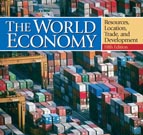Vietnam raises gasoline price 31 per cent
Hanoi -  Vietnam raised retail gasoline prices by 31 per cent Monday to reduce state fuel subsidies and bring local prices in line with international levels, local media said.
Vietnam raised retail gasoline prices by 31 per cent Monday to reduce state fuel subsidies and bring local prices in line with international levels, local media said.
The Ministry of Finance announced the decision at a press conference Monday morning. Fuel trading companies will be allowed to raise the price of A92-grade gasoline from 14,500 dong (0.86 dollars) to 19,000 dong (1.13 dollars) per liter, reported the news website dantri. com. vn.
Prices of kerosene will rise 44 per cent to 20,000 dong (1.19 dollars) per liter, while diesel fuel will rise 14 per cent to 15,950 dong (94.9 cents) per liter, the website said.
"If prices had not been raised, fuel trading firms would suffer losses of between 67 trillion dong (3.98 billion dollars) and 72 trillion dong (4.28 billion dollars) [this year]," Minister of Finance Vu Van Ninh was quoted as saying.
Ninh said local fuel trading companies reported losses of 14.5 trillion dong (864 million dollars) in the first six months of this year.
Ninh said the new gasoline price in Vietnam is still far below that in neighboring countries.
"The price of gasoline in Thailand is 20,220 dong (1.2 dollars) per liter, while it is 27,129 dong (1.61 dollars) per liter in Singapore and 23,253 dong (1.38 dollars) in Cambodia," Ninh said.
The move threatens to worsen Vietnam's inflation rate, which topped 18 per cent in the first six months of this year.
Food prices grew fastest, at 59 per cent over the first six months, followed by construction materials, which rose 14 per cent.
Vietnam is desperate to bring down its inflation rate, which is hurting the country's exports, driving workers to strike for higher pay and damaging confidence in dong.
Late last month, the Ministry of Planning and Investment announced a list of 1,600 state budget-funded projects with combined investment of 5.5 trillion dong (more than 330 million dollars) to be delayed or slowed down.
The government has also pledged to reduce expenditures on "off-budget" bond-issue funded infrastructure projects by 25 per cent, representing a cut of more than 8 trillion dong (480 million dollars).
Further, the government has ordered large state-owned enterprises to cut back on unnecessary expenditures and investments in non-core business areas.
In May, the National Assembly decided that fighting inflation took precedence over faster growth, and lowered its target for 2008 GDP growth from 8.5-9 per cent to 7 per cent. (dpa)